Moving on from Ladakh
India-China relations can enter a new chapter if bilateral negotiations progress beyond a talk show, and move the focus from borders to business linkages.
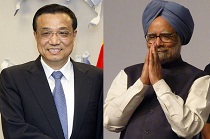 Courtesy: WikimediaCommons
Courtesy: WikimediaCommons
India-China relations can enter a new chapter if bilateral negotiations progress beyond a talk show, and move the focus from borders to business linkages.
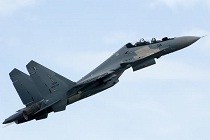 Courtesy: Kucingbiru13/WikimediaCommons
Courtesy: Kucingbiru13/WikimediaCommons
The Chinese defence industry has emerged as one of the world’s top five arms exporters. It has come a long way from the early 1990s when it was characterised by inefficiency, corruption, and poor performance.
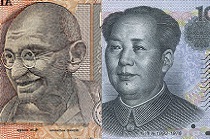 Courtesy: Flickr/CreativeCommons
Courtesy: Flickr/CreativeCommons
In the coming decade, India and China are set to achieve a historic $100 billion bilateral trade volume. But India’s concerns over growing trade imbalances and market access need to be addressed so that the two neighbouring economies can forge a more sustainable and mutually beneficial partnership
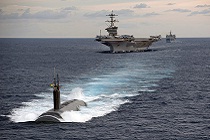 Courtesy: U.S.Navy Imagery/Flickr
Courtesy: U.S.Navy Imagery/Flickr
An understanding between China and India not to develop a permanent presence on each other’s maritime territories may be helpful in reducing tensions between the two navies. Given the broader context of Sino-Indian strategic rivalry, however, this seems unlikely.
 Courtesy: friendsofeurope/flickr
Courtesy: friendsofeurope/flickr
Chinese Premier Li Keqiang’s visit to India is likely to include an empty shopping basket of opportunities that keep domestic Chinese consumers content. Mr. Li should encourage Indian companies to fill that Chinese consumer need, and additional concessions may, if handled correctly by India, be sought as a result.
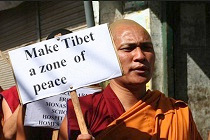 Courtesy: Wen-Yan King/Flickr
Courtesy: Wen-Yan King/Flickr
India should recognise the importance of Tibetans for India’s security. Security in the Himalayan borderlands does not come only from only a military build-up in which India cannot surpass China, or new border infrastructure, but also from the pro-India sentiments of its inhabitants.
 Courtesy: DVDSHUB/Flickr
Courtesy: DVDSHUB/Flickr
India and China have divergent approaches to terrorism emanating from Pakistan. How can New Delhi prod Beijing to act on its concerns about the terrorist infrastructure in Pakistan?
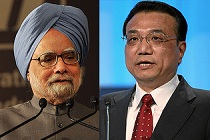 Courtesy: Flickr/CreativeCommons
Courtesy: Flickr/CreativeCommons
Chinese Premier Li Keqiang’s visit to India next week is unlikely to fast-track a resolution of the Sino-Indian territorial dispute. Li may suggest confidence-building mechanisms on the border, but these proposals need scrutiny. China’s border agreements with other neighbours are indicators of what India can expect
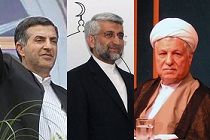 Courtesy: WikimediaCommons
Courtesy: WikimediaCommons
The 11th Presidential election of Iran will be held on June 14, 2013. Why will this election be a test for the Islamic Republic’s stability? What are the factors at play that make this election critical; and more importantly, why must India monitor it closely?
 Courtesy: Al Jazeera English/Flickr
Courtesy: Al Jazeera English/Flickr
Two years ago, during the Arab Spring uprisings in several West Asian nations, youth and pro-democracy movements flared up on the Persian Gulf island of Bahrain. In light of these events, this paper assesses how Bahrain’s policies toward its Shia constituency have affected relations between Sunni and Shia groups.